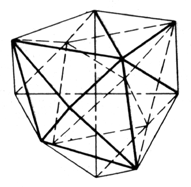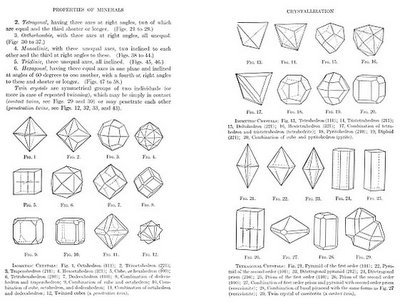
Further, the medieval treatise says, "any living person who has no soul can actually step into either one of the mirrors as if it were an open door and thus walk down the illusory corridor that appears to recede forever into the depths of the glass by virtue of one mirror reflecting itself in the other. The walls of such a corridor are said to be made from invulnerable panes of crystal, beyond which lies a nullified dimension of such complexity that to view it is surely to go insane. The book also explains at length that, after an eternity of walking down such a corridor, a person eventually exits from the looking-glass opposite to the one first entered."
And it gets more interesting:
The treatise's author, Bök explains, "speculates that a soulless man might carry another pair of mirrors into such a corridor, thereby producing a hallway at right angles to the first one, and of course this procedure might be performed again and again in any of the corridors until an endless labyrinth of glass has been erected inside the first pair of mirrors, each mirror opening onto an extensive grid of crisscrossing hallways, some of which never intersect, despite their lengths being both infinite and perpendicular."
The author of the treatise warns, however, that one could become "hopelessly lost while exploring such a maze" – for instance, "if the initial pair of mirrors are disturbed so that they no longer reflect each other, thus suddenly obliterating the fragile foundation upon which the entire maze rests."
In which case whole crystal cities of mirrored halls, in right-angled topologies of non-self-intersecting self-intersection, would simply disappear – along with anyone exploring inside them.

A kind of rogue experiment might ensue, aboard the International Space Station: an astronaut, crazed with loneliness, sets up two mirrors... and promptly escapes into a hinged labyrinth of crystallized earth-orbiters, his radio crackling unanswered in the control panel left behind.
No comments:
Post a Comment